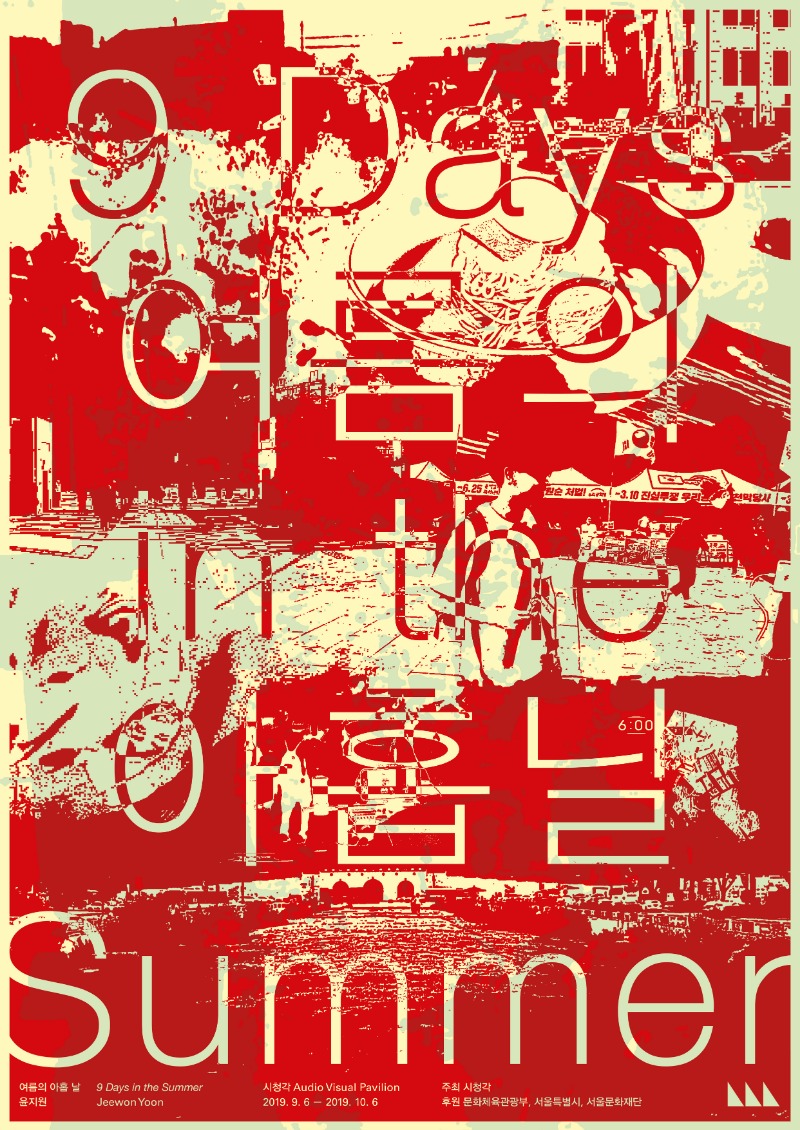
| Period| | 2019.09.06 - 2019.10.06 |
|---|---|
| Operating hours| | 12:00 - 18:00 |
| Space| | Audio Visual Pavilion |
| Address| | 57-6, Jahamun-ro, Jongno-gu, Seoul, Republic of Korea |
| Closed| | Mon., Jan. 1st, Korean Holiday |
| Price| | Free |
| Phone| | 02-730-1010 |
| Web site| | 홈페이지 바로가기 |
| Artist| |
윤지원
|
정보수정요청



|
|
Exhibition Information
Audio Visual Pavillion hosts 9 Days in the Summer, a solo exhibition of Yoon Jeewon, from September 6, 2019 to October 6, 2019. Yoon Jeewon is an artist with detail on the connection between time and space, memories and records and media and images through films. He collects images through various media by following in the footsteps of speculative memories or records in time and space of different settings. The collected images then are overlapped, collided or placed side by side according to the written script by the artist or sometimes away from the script. This method of exploring is interesting, but what is more to be focused on is the direction of the exploration. The destination of the exploration by Yoon Jeewon is the “present”. He asks persistently about the constantly renewed path of memories or map of the senses, and how we should apply them to perceive and speculate about the world. The exhibition 9 Days in the Summer features a movie of the same title. The title 9 Days in the Summer refers to the incident commonly known as “The Yonsei University Incident of 1996”, in which the South Korean Federation of University Student Councils and the government conflicted with the hosting of the Grand Unification Festival of August 1996. If guessed that the film will be about the Yonsei University Incident of 1996, it is both right and wrong. Although it was an important point in time, the Yonsei University Incident of 1996 has been forgotten in the memories of the people for the past 20 years, and thus lost its time and space. The film starts its story from and is based on the Yonsei University Incident of 1996, but uses the incident simply as a tool to reflect on how Korea looks today. The film investigates the student society of Yonsei University in 2019 and its remnants in Seoul. The artist suggests the audience to “face the present that we are in with its relationship with the past from multiple angles” through the film.
